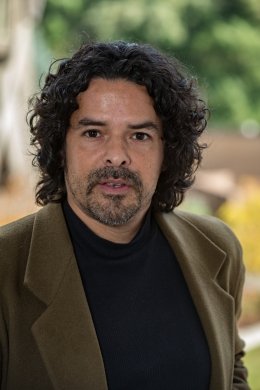
Criminology and Criminal Justice
If you dream of pursuing a career in law enforcement, corrections, legal studies or victim services, criminology and criminal justice may be the best major for you.
Why Saint Martin's University?
Saint Martin's criminology and criminal justice major is an interdisciplinary social science program preparing candidates for positions in the criminal justice field and providing a solid background for advanced education in graduate or law school. A major in criminal justice may be complemented by minors in sociology, psychology, political science or social work.
CCJ program highlights
- Personalized career advising
- Low 1:11 student to faculty ratio
- A dedicated faculty with strong ties to local law enforcement agencies
- Students study with professionals working in the field, as well as with our regular faculty
- Hands-on experience through internships within agencies that form part of the criminal justice system
- Capstone project allowing students to identify and pursue a contemporary issue of significant and substantial concern
- Students broaden their perspective through a wide range of specialty courses, including victimology, drugs and society, social justice, and deviant behavior
Enhanced study
Students who pursue a minor in criminal justice can use this concentration to enhance a major field of study such as:
Criminology and Criminal Justice Requirements
Details on courses, including details about university core requirements, can be found in the academic catalog.
All students majoring in criminal justice are required to complete a senior capstone project and apply for Saint Martin's yearly scholarly presentation event, Scholars Day.
- University core requirements
- 12 credit hours of core criminal justice system courses
- 6 credit hours of social science foundation courses
- 9 credit hours of nature of crime, delinquency and criminal justice processing courses
- 12 credit hours of criminal justice elective courses
- 6 credit hours of capstone in criminal justice career and advanced studies preparation courses
- 15 credit hours of core criminal justice system courses
- 9 credit hours of criminal justice elective courses
Corrections concentration
This pathway is designed to prepare students for future careers in correctional settings. Graduates may choose to pursue a career as a correctional officer or jailer in institutional corrections settings, such as prisons, jails and detention facilities. Alternatively, students may choose a career as a probation or parole officer, case manager or correctional counselor within a variety of community supervision settings.
Law enforcement and investigation concentration
This pathway is designed to prepare students for future careers in law enforcement and investigation settings. Graduates may choose to pursue a career as a sworn agent, police, or public safety officer for local, state or federal agencies. Many law enforcement careers are available in these categories, including: sheriff, bailiff, state trooper, FBI agent, park ranger, border patrol agent, US marshal, DEA agent, Secret Service agent, fish and wildlife police, and US park police. Alternatively, students may choose a career working in the private sector as investigators, loss prevention agents or security personnel.
Legal studies concentration
This pathway is designed to prepare students for future careers in legal settings. Graduates may choose to pursue graduate education in law school as the next step toward a career as a lawyer. Alternatively, students may choose a career as a court clerk, legal researcher, court services officer or paralegal.
Victim services concentration
This pathway is designed to prepare students for future careers in serving victims of crime, violence or trauma. Graduates may choose to pursue a career as a victim advocate, victim coordinator or victim specialist, witness coordinator or specialist.
- Drugs, the family and society
- Forensic science
- Gender, crime and law
- Philosophy of law
- White collar crime
Criminology and Criminal Justice at a Glance
- Degree
- Bachelor of Arts
- Program Type
- Major
- Minor
- Campus
- Main (Lacey)
- Saint Martin's-JBLM
- Type of Instruction
- In Person
- Resources
- What can I do with this major?

 Outcomes
Outcomes
 Community
Community







